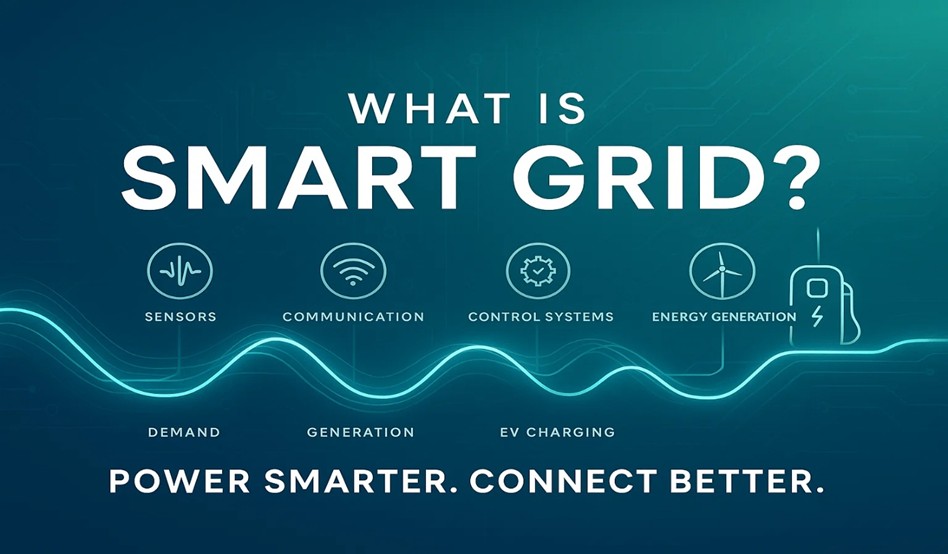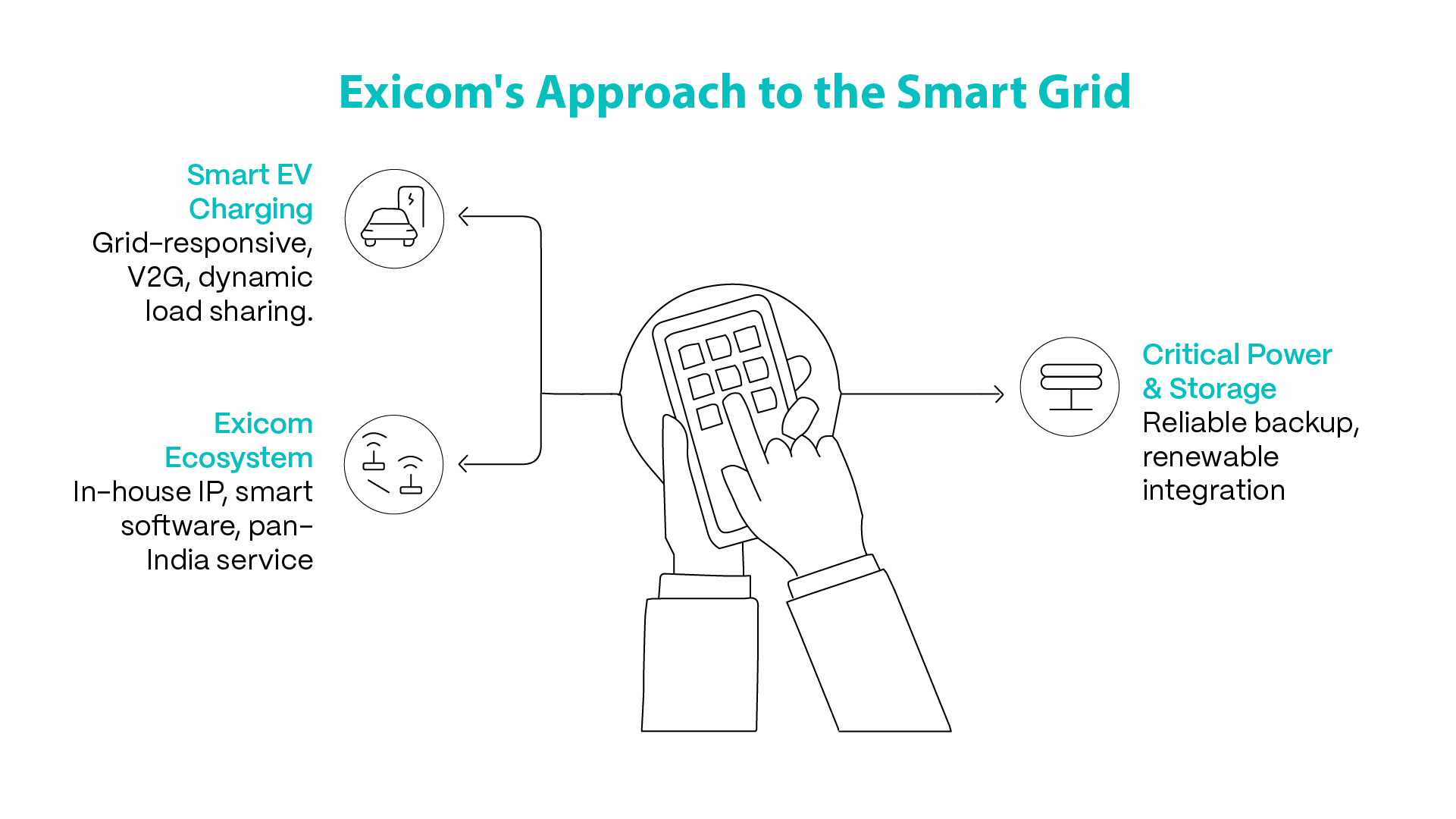What is Smart Grid?

What is a Smart Grid?
Managing the modern energy loads, such as EV charging requires a proper approach to build an interactive ecosystem. This is achieved through the smart network, which is known as the Smart Grid. It uses sensors, digital communication methodology to manage the flow of electricity from all forms of sources. The inclusion of renewable resources helps to meet the varying electricity demands of end users. The establishment of an interactive ecosystem helps in delivering the power in the most efficient manner. By using the modern grid, it becomes easy to discover the new innovations in the field of EV chargers. Through this procedure modern advancements can be achieved in a sustainable manner.
How Smart Grid Works
The smart grid follows the concept of building networks. By using smart meters, sensors and controlling systems the aim is to give real-time details. The method of two-way communication between the utility and the customer allows for delivering a responsive and automated flow for energy delivery systems.
Let's understand the workflow through analyzing various parameters:
- Grid Load and Forecasts: It is responsible for the prediction of energy demand to ensure adequate supply.
- Using Distributed Energy Resources (DERs): The DERs primary focus in integrating signals from rooftop solar, batteries and various distributed generations.
- Market Price Signals: Adjustment of the consumption is done through real-time electricity tariffs.
- Meet EV Charger Demand: The shifting of load balancing is done for best optimization through communication with smart EV charging stations.
By using these parameters, the workflow of the smart grid is designed to meet the needs of critical power solutions.
Which Technologies Enable a Smart Grid System?
To meet the various needs of EV charging manufacturers in India, technological advancements plays a major role. By delivering the best AI-based automation and following the advanced method of control systems, it can be achieved.
Let’s discover the modern technologies in changing the EV charging infrastructure:
.png)
Real-Life Applications of Smart Grid
Smart grid technology plays a major role in enabling the wide array of modern energy applications, which is crucial for decarbonization.
Avoiding Overloading of the Power System
It acts like a traffic controller for electricity, which has the capability of intelligent scheduling when the vehicle charges and avoids the overloading of the power system.
Utility Scale Renewable Integration
Helps in forecasting and providing flexibility, which is needed for incorporating large amounts of solar and wind energy.
Vehicle to Grid (V2G)
The use of electric vehicles as mobile storage units for feeding power to the grid during peak time helps in turning a home charger into a grid-based asset.
Campus Energy Management & Microgrid
The creation of self-sufficient local grids which can operate independently and have the capability to integrate solar, storage and necessary critical power solutions.
Final Thoughts

The smart grid is a revolutionary upgrade to the electrical infrastructure. This makes it an intelligent, digitally connected system which uses real-time data. It also follows the automation strategy to deliver maximum energy throughput. For achieving this interconnected ecosystem, smart EV charging expertise by Exicom is playing a major role in the EV industry. The company positions itself as the leading Indian EV smart charger manufacturer to deliver sustainable solutions.
It produces both home and public chargers embedded with smart, grid-responsive functionalities. By this way, Exicom ensures that electric vehicles serve as an essential component to reinforce grid resilience rather than straining it. Its EV technology provides critical hardware and intelligence which helps to evolve the traditional grid into a dynamic, efficient and environmentally friendly smart grid.
FAQs
1. What is a smart grid?
It is a smart electricity network which uses digital communication and automation to optimize energy distribution.
2. How does a smart grid benefit EV owners?
The benefits involve reducing the grid strain, enabling cost savings, offering proper energy management and scalable integrations.
3. How does Exicom support the smart grid?
Exicom uses its EV charging expertise to produce smart EV chargers (home and public). Also, offers grid-responsive features such as V2G readiness and load management.




